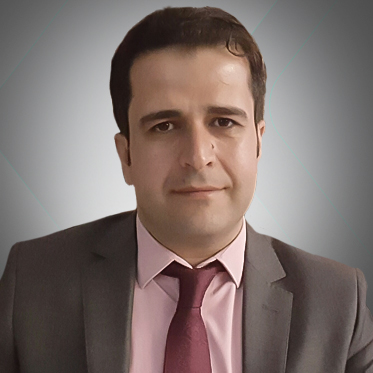Test of Baghdad’s sincerity to Kurds, implementation of Article 140

As Iranian-backed Hashd al-Shaabi militia forces armed with US-supplied tanks, Humvees, and artillery streamed into Kirkuk and disputed territories, it left Erbil and Baghdad on the verge of a full-blown war.
Amid the current chaos, it is easy to forget a political solution to Kirkuk, and all such territories, is already enshrined in Iraqi legislature which Baghdad has failed to implement.
As Kurds agreed to a voluntary union in 2003 as part of the post-Saddam Hussein Iraq, a resolution to the status of Kirkuk was at the top of the discussions.
Article 58 of the Transitional Administrative Law outlined a resolution for Kirkuk before it was succeeded by Article 140 of the Iraqi Constitution agreed in 2005.
Under Article 140, after a period of normalization, reversing the systematic Arabization policies under the former Iraqi dictator, a census would be held, and, eventually, a referendum to decide if the population wanted to join the Kurdistan Region. The deadline to implement these measures was at the end of 2007.
The status of these territories would not remain unclear or disputed 10 years later if Baghdad had implemented this key constitutional article.
The question is not only what is in the constitution but also how to ensure all sides are committed to its implementation even if it may come to the detriment of one side.
Baghdad clearly dragged its heels over Article 140, as it was highly likely that its implementation would have seen all such territories legally incorporated into Kurdistan. It did not even implement a national census, as a Kurdish majority would give credibility to Kurdish claims over the city.
Baghdad created a legislative and political crisis by not implementing the constitution and then decided to impose a solution to the ensuing fallout with a military response.
Iraqi and US officials have continuously pointed to the resolution of all Erbil-Baghdad issues in accordance with the constitution. This is a facade if Baghdad does not adhere to such constitutional articles.
After days of an indifferent US response to the Iranian-backed offensive that emboldened Iraqi forces as they reached the outskirts of Erbil, the US gave a more encouraging statement after the Hashd al-Shaabi-led assault on Pirde.
US State Department Spokesperson Heather Nauert stressed, “The reassertion of federal authority over disputed areas in no way changes their status.”
“They remain disputed until their status is resolved in accordance with the Iraqi Constitution,” Nauert added.
Importantly, Article 140 should be implemented as per legislature, with no special status for Kirkuk that many in Baghdad desire to dilute prospective Kurdish gains.
Pointing to the multi-ethnic setup of Kirkuk, Iraqi Prime Minister Haider al-Abadi previously stated, “Kirkuk is for all the people of Kirkuk with all its communities.”
“I think the issue should not be dealt with in the context of majority because that is the matter of coexistence and coexistence means living in one frame,” Abadi insisted.
Abadi’s statement is an example of obstacles created for the implementation of the article. As the Kurdistan leadership have highlighted, if Kurds are a majority, it does not mean the sidelining of Arabs or Turkmen or peaceful co-existence.
Moreover, the results of any referendum under Article 140 are no less different if the majority vote to join the Kurdistan Region.
Mosul, like many other Iraqi cities, is a multi-ethnic city. Would Baghdad also propose a special status for Mosul?
Any subsequent failure to implement Article 140 not only speaks volumes about the sincerity of Baghdad to the principles of partnership and federalism, but it also condones the decades of brutal Arabization policies under Hussein that Article 140 served to address.
Whether its hydrocarbon laws, Article 140 or other federal government obligations to Kurdistan, Baghdad must show it can implement the constitution in full, even if the outcome is not always to its liking.
Bashdar Pusho Ismaeel is a London-based freelance writer and analyst whose primary focus and expertise is on the Kurds, Iraq, and current Middle Eastern affairs.
The views expressed in this article are those of the author and do not necessarily reflect the position of Kurdistan 24.
Editing by Karzan Sulaivany
